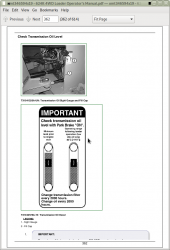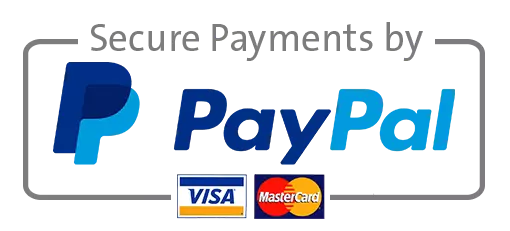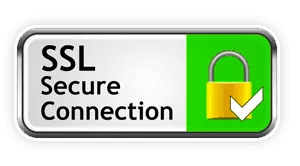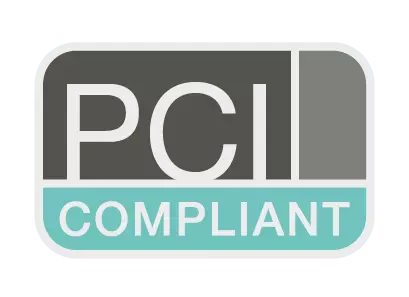John Deere 624K 4WD Loader Operator's Manual (OMT346594X19)
Catalog:
Model:
Price: US$ 29.00
John Deere 624K 4WD Loader Operator's Manual (OMT346594X19)
omt346594x19 - 624K 4WD Loader Operator's Manual.pdf
Complete Operator's Manual for John Deere 624K 4WD Loader, with all the shop information to maintain & operate John Deere 624K 4WD Loader.
PRODUCT DETAILS:
Total Pages: 604 pages
File Format: PDF (Internal Links, Bookmarked, Table of Contents, Searchable, Printable, high quality)
Language: English
omt346594x19 - 624K 4WD Loader
Table of Contents
Foreword
Manual Identification—READ THIS FIRST!
IMPORTANT
License Agreement for John Deere Software
Conformity Marking for European Union (EU) and Eurasian Economic Union (EAEU)
EPA Non-road Emissions Control Warranty Statement—Compression Ignition
CARB Non-road Emissions Control Warranty Statement—Compression Ignition
FCC Notifications to User
Service ADVISOR™ Remote (SAR)—SOFTWARE TERMS AND CONDITIONS
Technical Information Feedback Form
Section 1-1: Safety—Safety and Operator Conveniences
Safety and Operator Convenience Features
Section 1-2: Safety—General Precautions
Information for European Union Directives and Eurasian Economic Union Technical Regulations Compliance
Recognize Safety Information
Follow Safety Instructions
Operate Only If Qualified
Wear Protective Equipment
Avoid Unauthorized Machine Modifications
Inspect Machine
Stay Clear of Moving Parts
Avoid High-Pressure Fluids
Avoid High-Pressure Oils
Work In Ventilated Area
Prevent Fires
Avoid Static Electricity Risk When Refueling
Clean Debris from Machine
Prevent Battery Explosions
Handle Chemical Products Safely
Decommissioning — Proper Recycling and Disposal of Fluids and Components
Prepare for Emergencies
Add Cab Guarding for Special Uses
Do Not Use Starting Fluid
Section 1-3: Safety—Operating Precautions
Use Steps and Handholds Correctly
Start Only From Operator's Seat
Use and Maintain Seat Belt
Prevent Unintended Machine Movement
Avoid Work Site Hazards
Use Special Care When Operating Loader
Keep Riders Off Machine
Avoid Backover Accidents
Avoid Machine Tip Over
Operating on Slopes
Operating or Traveling On Public Roads
Inspect and Maintain ROPS
Add and Operate Attachments Safely
Section 1-4: Safety—Maintenance Precautions
Park and Prepare for Service Safely
Service Cooling System Safely
Service Tires Safely
Remove Paint Before Welding or Heating
Make Welding Repairs Safely
Drive Metal Pins Safely
Section 1-5: Safety—Safety Signs
Safety Signs
Section 2-1: Operation—Operator’s Station
Levers—Two Function Hydraulic Control
Levers—Three Function Hydraulic Control
Pedals
Sealed Switch Module (SSM)
Switch Module Functions
Advanced Display Unit (ADU)
Display Unit Functions
Horn Button
Turn Signals
Air Conditioner and Heater Operation
Counter Switch
Opening and Securing Side Door
Opening Side Window/Secondary Exit
Opening Rear Side Window
Seat Adjustment
Fire Extinguisher Mounting Location
Section 2-2: Operation—Operating the Machine
Before Starting Work
Inspect Machine Daily Before Starting
Check Instruments Before Starting
Security System
Battery Disconnect Switch
Engine Break-In Period
Starting the Engine
Warmup
Cold Weather Warmup
Park Brake Switch
Shifting the Transmission
Automatic Idle and Automatic Shutdown
Joystick Bucket and Boom Control
Two Lever Bucket and Boom Control
Auxiliary Control
Ride Control—If Equipped
Differential Lock Operation
Service ADVISOR™ Remote (SAR) Software Delivery Process
Rear Camera and Radar Object Detection (ROD) System—If Equipped
Counter Switch Operation
Boom Height Kickout Adjustment
Return-to-Carry Kickout Adjustment
Return-to-Dig Adjustment for Z-Bar Linkage
Operating Loader Coupler—If Equipped
Using the Loader Bucket
Backdragging
Fork Attachment
Parking the Machine
Loading Machine on a Trailer
Towing Procedure
Lifting the Machine
Section 2-3: Operation—Monitor Operation
Display Unit—Normal Display
Display Unit—Main Menu
Display Unit—Main Menu—Codes
Display Unit—Main Menu—Codes—Active Codes
Display Unit—Main Menu—Codes—Stored Codes
Display Unit—Main Menu—Settings—If Equipped
Display Unit—Main Menu—Settings—Reverse Fan Cycle
Display Unit—Main Menu—Settings—Courtesy Lights
Display Unit—Main Menu—Settings—Quick Shift
Display Unit—Main Menu—Settings—Job Timer
Display Unit—Main Menu—Settings—Stopwatch
Display Unit—Main Menu—Settings—Ride Control—If Equipped
Display Unit—Main Menu—Settings—Counters
Display Unit—Main Menu—Settings—Camera Mode—If Equipped
Display Unit—Main Menu—Settings—Operator Configuration
Display Unit—Main Menu—Diagnostics
Display Unit—Main Menu—Diagnostics—Machine ID
Display Unit—Main Menu—Diagnostics—Battery Monitor
Display Unit—Main Menu—Diagnostics—Engine Sensors
Display Unit—Main Menu—Diagnostics—Transmission/Axle
Display Unit—Main Menu—Diagnostics—Hydraulic Sensors
Display Unit—Main Menu—Diagnostics—Machine Sensors
Display Unit—Main Menu—Diagnostics—FNR Selector
Display Unit—Main Menu—Diagnostics—Cab Switches
Display Unit—Main Menu—Diagnostics—Switch Module
Display Unit—Main Menu—Diagnostics—Object Detect—If Equipped
Display Unit—Main Menu—Diagnostics—Auto Diff Lock—If Equipped
Display Unit—Main Menu—Diagnostics—JDLink™ System Info
Display Unit—Main Menu—Diagnostics—Park Brake Test
Display Unit—Main Menu—Security
Display Unit—Main Menu—Security—Security
Display Unit—Main Menu—Security—Change Owner PIN
Display Unit—Main Menu—Security—Manage Operator PINs
Display Unit—Main Menu—Security—Manage Transport PIN
Display Unit—Main Menu—Security—Delayed Operator Logout
Display Unit—Main Menu—Software Delivery
Display Unit—Main Menu—Software Delivery—Software Update
Section 3-1: Maintenance—Machine
Diesel Fuel
Lubricity of Diesel Fuel
Handling and Storing Diesel Fuel
BioDiesel Fuel
Testing Diesel Fuel
Fuel Filters
Supplemental Diesel Fuel Additives
Minimizing the Effect of Cold Weather on Diesel Engines
Alternative and Synthetic Lubricants
Lubricant Storage
Mixing of Lubricants
Diesel Engine Break-In™ Oil
Diesel Engine Oil — Tier 3 and Stage III
Diesel Engine Oil
Engine Oil and Filter Service Intervals—Tier 3 and Stage III Engines
Engine Oil and Filter Service Intervals — Tier 2 and Stage II Engines
Oil Filters
Transmission, Park Brake, and Axle Oil
Hydraulic System Oil
Grease
Diesel Engine Coolant (engine with wet sleeve cylinder liners)
Water Quality for Mixing with Coolant Concentrate
Operating in Warm Temperature Climates
Testing Coolant Freeze Point
Disposing of Coolant
Section 3-2: Maintenance—Periodic Maintenance
Engine Identification
Service Machine at Specified Intervals
Check Hour Meter Regularly
Prepare Machine for Maintenance
Frame Locking Bar
Boom Lock
Engine Service Doors and Side Shields
Cooling System Doors
Fuel Tank
Fluid Analysis Program Test Kits and 3-Way Coolant Test Kit
Service Intervals
Required Parts
Maintenance Legend
Section 3-3: Maintenance—As Required
Inspect Tires and Check Pressure
Tire Pressures
Check Wheel Bolt Torque
Inspect Engine Air Cleaner Elements
Inspect Air Conditioner Compressor and Alternator Belt
Clean Cooler Cores
Check Windshield Washer Fluid Level
Drain Water From Primary Fuel Filter and Water Separator
Drain Water From Final Fuel Filter
Drain Water From Auxiliary Fuel Filter and Water Separator—If Equipped
Check and Clean or Replace Cab Fresh Air Filter
Check and Clean or Replace Cab Recirculating Air Filter
Check Rear Camera and Radar Object Detection (ROD) System—If Equipped
Section 3-4: Maintenance—Every 10 Hours or Daily
Clean Air Cleaner Dust Unloader Valve
Check Coolant Level in Surge Tank
Check Engine Oil Level
Check Hydraulic System Oil Level
Check Transmission Oil Level
Inspect Outer Pin Seals
Section 3-5: Maintenance—Initial Service - 100 Hours
Replace Axle Oil Filters
Section 3-6: Maintenance—Every 100 Hours
Lubricate Loader Linkage and Cylinder Pivots—Z-Bar Linkage
Section 3-7: Maintenance—Every 250 Hours
Take Engine Oil Sample
Section 3-8: Maintenance—Every 500 Hours
Lubricate Driveline Upper and Lower Sliding Joints and Lower U-Joints
Check Front and Rear Axle Oil Level
Lubricate Front and Rear Axle Shaft Seals
Check Battery Water Level and Terminals
Check Air Intake Hoses and Charge Air Cooler Tube Couplings
Take Fluid Samples
Drain and Refill Engine Oil and Replace Filter
Replace Auxiliary Fuel Filter—If Equipped
Replace Primary Fuel Filter
Replace In-Line Fuel Strainer
Replace Final Fuel Filter
Replace Hydraulic Reservoir Breather Filter
Check Park Brake Oil Level
Lubricate Front and Rear Shaft Seals on Park Brake
Check Ride Control Accumulator—If Equipped
Section 3-9: Maintenance—Every 1000 Hours
Clean Engine Crankcase Vent Tube
Replace Air Cleaner Dust Unloader Valve
Replace Engine Air Cleaner Elements
Check Coolant Condition
Replace Axle Oil Filters
Lubricate Frame Hinge Pivots
Drain and Refill Park Brake Oil
Section 3-10: Maintenance—Every 2000 Hours
Replace Outer Pin Seals
Drain and Refill Transmission Oil and Replace Filter
Drain and Refill Front and Rear Axle Oil
Clean Front and Rear Axle Oil Recirculation Screens—If Equipped
Adjust Engine Valve Lash (Clearance)
Rerun Transmission Clutch Calibration
Section 3-11: Maintenance—Every 4000 Hours
Replace Crankshaft Damper
Clean Hydraulic Pump Case Drain In-Line Screen
Replace Hydraulic System Return Filter
Drain, Flush, and Refill Hydraulic System Oil
Clean Hydraulic System Fill Strainer
Section 3-12: Maintenance—Every 5000 Hours
Inspect Driveline Damper
Section 3-13: Maintenance—Every 6000 Hours
Drain Cooling System
Refill Cooling System
Section 4-1: Miscellaneous—Machine
Check Air Inlet Cover
Inspect Fuel Tank Vent Hose and Breather Filter
Bleed Fuel System
Do Not Service Control Valves, Cylinders, Pumps, or Motors
Precautions for Alternator and Regulator
Handling, Checking, and Servicing Batteries Carefully
Using Booster Batteries—24-Volt System
Using Battery Charger
Replacement Batteries
Remove and Install Batteries
12-Volt Auxiliary Power Outlet—If Equipped
JDLink™ Machine Monitoring System (MMS)—If Equipped
Replacing Fuses
Remove and Install Halogen Bulbs
Fluid Sampling Test Ports—If Equipped
Air Conditioner System Service
External Service Brake Inspection
Bleeding Brakes
Service Recommendations For Snap-To-Connect (STC®) Fittings
Welding on Machine
Welding Near Electronic Control Units
Keep Electronic Control Unit Connectors Clean
Replacing Bucket Teeth—TK Series
Keep ROPS Installed Properly
Hardware Torque Specifications
Unified Inch Bolt and Screw Torque Values
Metric Bolt and Screw Torque Values
Section 4-2: Miscellaneous—Operational Checkout
Operational Checkout
Section 4-3: Miscellaneous—Troubleshooting
Troubleshooting Procedure
Engine
Transmission
Differential and Axle
Service Brake
Driveline
Park Brake
Hydraulic System
Steering
Air Conditioning System
Heater System
Software Update
Section 4-4: Miscellaneous—Storage
Prepare Machine for Storage
Monthly Storage Procedure
Section 4-5: Miscellaneous—Machine Numbers
Record Product Identification Number (PIN)
Record Engine Serial Number
Record Transmission Serial Number
Record Hydraulic Pump Serial Number
Record Front and Rear Axle Housing Serial Numbers
Keep Proof of Ownership
Keep Machines Secure
Section 4-6: Miscellaneous—Specifications
Engine Specifications
Drain and Refill Capacities
Drain and Refill Capacities
Standard Z-Bar Specifications
High Lift Z-Bar Specifications
Travel Speeds
Eurasian Economic Union
Machine Design Life







